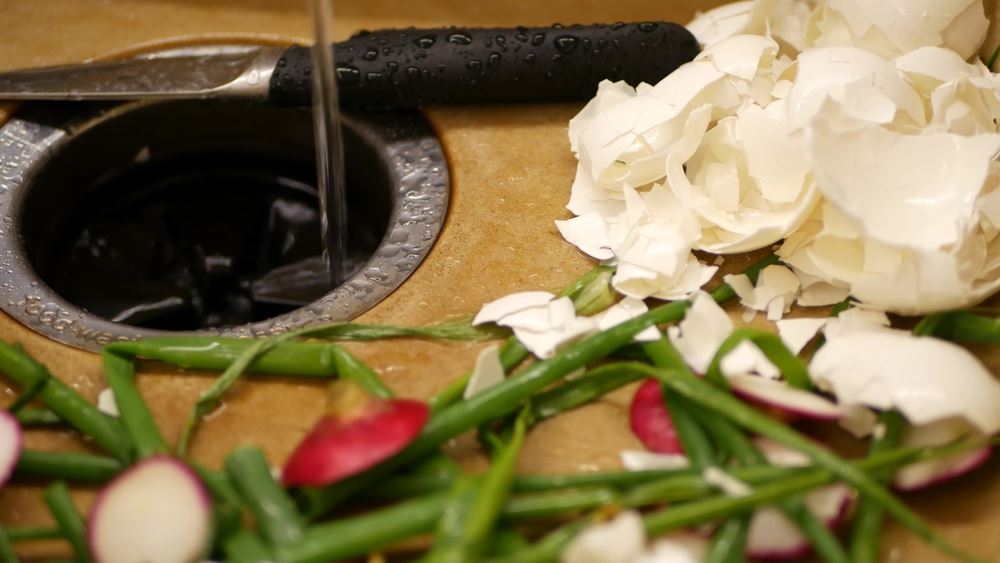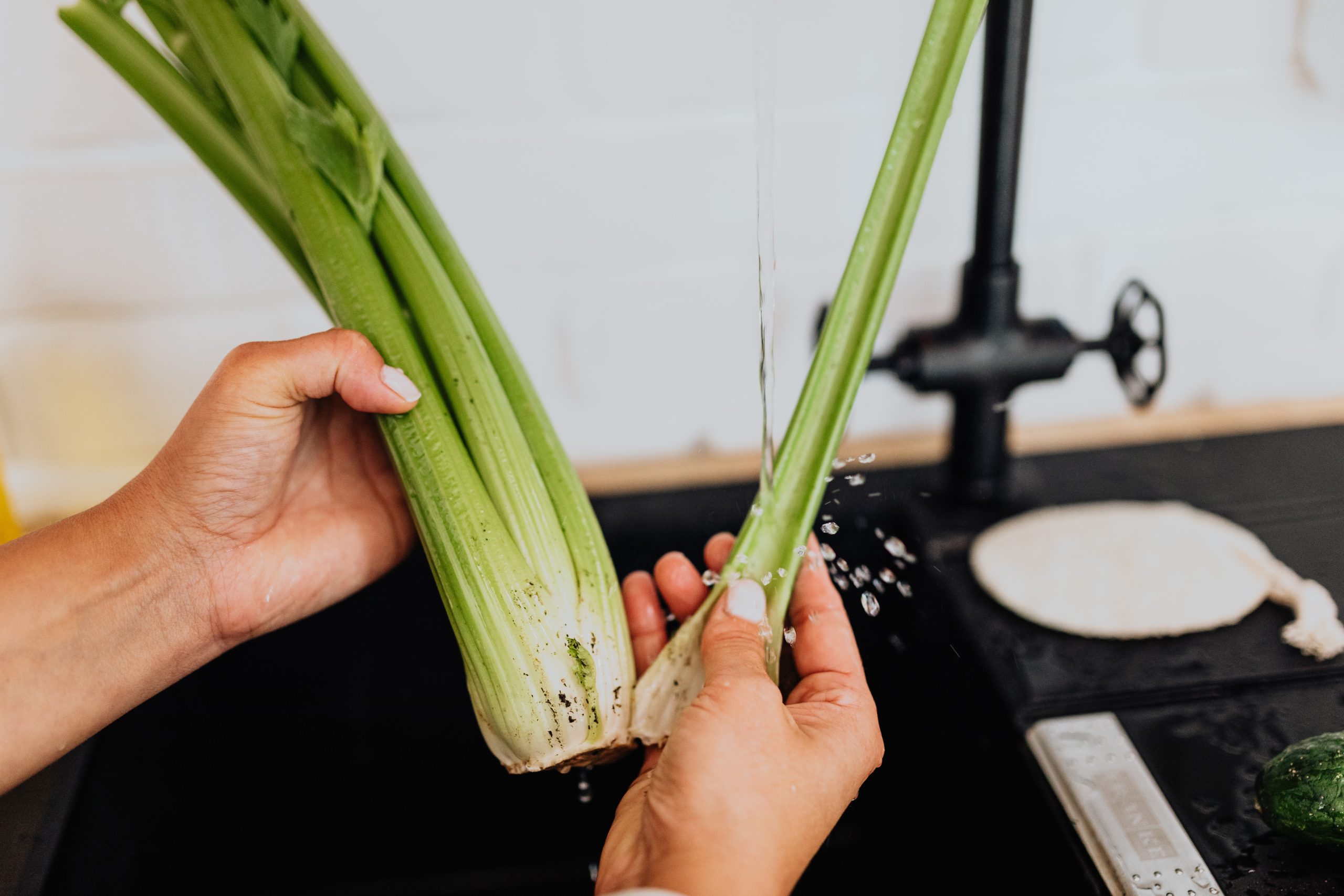Proper waste management is essential in maintaining a clean and healthy living environment. Within our homes, one important tool that aids in efficient waste disposal is the sink garbage disposal. Often overlooked, the proper use of a garbage disposal is crucial not only for maintaining a functional plumbing system but also for promoting sustainability and minimizing waste accumulation.
In this comprehensive guide, we will delve into the importance of proper garbage disposal use. We will explore its benefits, address common mistakes to avoid, provide tips for maintenance, and discuss potential effects on your plumbing system. By understanding the significance of proper garbage disposal use, you can contribute to a cleaner and more eco-friendly household.
How a Sink Garbage Disposal Works

A sink garbage disposal is a mechanical device installed beneath the kitchen sink that efficiently manages food waste. It consists of a motorized unit with sharp blades and a grinding chamber. When activated, the blades spin rapidly, cutting and shredding the food waste into smaller particles. The waste particles are then flushed down the drainage system with the help of water. It’s important to use the garbage disposal properly by feeding the waste gradually and running cold water to prevent clogs. Understanding how a sink garbage disposal works enables effective waste disposal, ensures a functional plumbing system, and maintains a cleaner kitchen environment.
Benefits of Using a Garbage Disposal
Using a garbage disposal in your kitchen offers numerous benefits that go beyond just convenient waste disposal. Let’s delve deeper into the advantages of incorporating a garbage disposal into your daily routine:
Reduces Waste Accumulation
One of the primary benefits of using a garbage disposal is its ability to reduce waste accumulation in your household. Instead of allowing food scraps to sit in your trash can, where they can emit unpleasant odors and attract pests, the disposal unit efficiently processes them. By diverting food waste from landfills, you contribute to a cleaner and more hygienic living environment. With a garbage disposal, you can dispose of small food scraps conveniently, preventing them from cluttering up your trash and reducing the frequency of trash bag changes.
Minimizes Odors and Pests
Improperly disposed of food waste can result in unpleasant odors in your kitchen. By utilizing a garbage disposal, you can effectively minimize these odors. The grinding action of the disposal prevents the decomposition process that causes foul smells. Instead of leaving food waste to decompose in a trash can, the disposal grinds it into small particles that can be easily flushed away. This reduces the presence of organic matter that emits odors and helps maintain a fresher and more pleasant kitchen environment. Additionally, by reducing the presence of food waste, you decrease the chances of attracting pests such as rodents and insects. Properly disposing of food scraps through the garbage disposal can help prevent infestations and promote a cleaner, pest-free home.
Promotes Environmental Sustainability
Proper use of a garbage disposal promotes environmental sustainability. By diverting food waste from landfills, you help reduce greenhouse gas emissions. Food waste that ends up in landfills produces methane, a potent greenhouse gas. When food waste is sent through a garbage disposal instead, it undergoes proper treatment and management. The waste is broken down into smaller particles and transported through the wastewater system to be treated at wastewater treatment plants. This process prevents the release of methane into the atmosphere, contributing to a greener and more sustainable future. By incorporating a garbage disposal into your kitchen routine, you actively participate in reducing your ecological footprint and preserving the environment for future generations.
The benefits of using a garbage disposal extend beyond the convenience of waste disposal. It helps reduce waste accumulation, minimizes odors and pests in your kitchen, and promotes environmental sustainability. By embracing the use of a garbage disposal, you contribute to a cleaner, fresher living environment while actively supporting efforts to reduce waste and protect our planet.
Common Mistakes to Avoid When Using a Garbage Disposal

To ensure the optimal performance and longevity of your garbage disposal, it’s crucial to be aware of common mistakes that should be avoided. By understanding these potential pitfalls, you can prevent damage to your disposal unit and maintain a smoothly functioning kitchen plumbing system. Here are some key mistakes to steer clear of when using a garbage disposal:
Avoid Grinding Non-Food Items
One of the most common mistakes homeowners make is treating the garbage disposal as a universal trash can. It’s important to remember that garbage disposals are specifically designed for processing biodegradable food waste. Avoid grinding non-food items such as plastic, metal, glass, cigarette butts, or paper products. These objects can damage the blades, impede the device’s performance, and even cause clogs in the plumbing system. To preserve the integrity of your garbage disposal, only feed it with food waste.
Be Mindful of Grease and Oils
Pouring grease or oil down the drain is a recipe for trouble. These substances can solidify and accumulate within the pipes, leading to clogs and potential plumbing issues. While it may be tempting to wash away leftover grease by running hot water and activating the garbage disposal, it’s best to avoid doing so. Hot water may liquefy the grease temporarily, but it can solidify further down the pipes, causing blockages. Instead, allow grease and oils to cool and dispose of them in a separate container or the appropriate waste receptacle.
Handle Fibrous Foods with Care
Fibrous foods like celery, corn husks, and onion skins should be handled with caution when using a garbage disposal. The long, stringy nature of these items can wrap around the disposal’s blades, impeding their rotation and potentially causing motor strain. To prevent this, cut fibrous foods into smaller pieces before disposing of them. Additionally, starchy foods like pasta and rice can expand when exposed to water, leading to blockages. It’s advisable to dispose of these in moderation and ensure they are accompanied by a sufficient amount of water to facilitate their passage through the plumbing system.
By avoiding these common mistakes, you can maintain the functionality and longevity of your garbage disposal unit. Remember to use it exclusively for biodegradable food waste, dispose of grease and oils properly, and handle fibrous foods with care. By treating your garbage disposal with the necessary care and attention, you can enjoy its benefits while minimizing the risk of plumbing issues and costly repairs.
Maintaining Your Garbage Disposal for Longevity
Maintaining your garbage disposal is essential for ensuring its longevity and optimal performance. By following a few simple maintenance practices, you can keep your disposal unit running smoothly and avoid potential issues. Here are some key tips for maintaining your garbage disposal:
Regular Cleaning
Regular cleaning is crucial for keeping your garbage disposal in top shape. Food particles and residue can accumulate over time, leading to unpleasant odors and potential blockages. To clean your disposal, turn off the power and use a long-handled brush or a toothbrush to scrub the inside of the disposal chamber. You can also create a cleaning solution by mixing vinegar and baking soda and pouring it down the disposal. Let it sit for a few minutes before rinsing with hot water. Regular cleaning not only eliminates odors but also prevents the buildup of debris that can hinder the unit’s performance.
Flushing with Cold Water
Flushing your garbage disposal with cold water is a simple yet effective practice for maintaining its health. After using the disposal, run cold water for about 15 seconds to ensure any remaining food particles are flushed away. The cold water helps solidify grease and oils, preventing them from sticking to the blades or accumulating in the pipes. Avoid using hot water as it can liquefy grease temporarily, leading to potential clogs further down the plumbing system. Cold water not only aids in waste disposal but also helps keep the disposal unit clean and clear.
Using Ice Cubes for Sharpening Blades
Keeping the blades of your garbage disposal sharp is essential for its efficient operation. An easy and effective way to sharpen the blades is by using ice cubes. Simply drop a few ice cubes into the disposal and run it for about 30 seconds. The ice cubes help remove debris and residue from the blades, sharpening them in the process. You can also add a small amount of rock salt to the ice cubes for an extra cleaning boost. This simple maintenance practice helps ensure that your garbage disposal can effectively break down food waste and reduces the risk of jamming.
By incorporating these maintenance practices into your routine, you can prolong the lifespan of your garbage disposal and prevent costly repairs. Regular cleaning, flushing with cold water, and using ice cubes for blade sharpening are simple yet effective ways to keep your disposal unit in optimal condition. By taking care of your garbage disposal, you can enjoy its benefits for years to come, ensuring a functional and efficient kitchen plumbing system.
Safety Precautions When Using a Garbage Disposal

Safety should always be a top priority when using a garbage disposal in your kitchen. By following a few important safety precautions, you can ensure the well-being of yourself and others while operating the disposal unit.
First and foremost, never put your hands or any foreign objects into the disposal while it is running or even when it is turned off. It’s crucial to keep your fingers and hands clear of the disposal chamber to avoid the risk of injury. Instead, use a long-handled utensil or tongs to remove any items that accidentally fall into the disposal.
Always remember to turn off the power to the disposal before performing any maintenance or repairs. This can be done by either unplugging the unit or turning off the circuit breaker dedicated to the disposal. This precautionary measure ensures that there is no risk of accidental activation while you’re working on the unit.
Additionally, it’s important to keep children and pets away from the garbage disposal when it is in use. The sharp blades and powerful motors can pose a serious risk, so it’s best to create a safe environment by restricting access to the area. Consider installing a switch guard or a protective cover to prevent accidental operation by young children.
When operating the garbage disposal, always run cold water before, during, and after use. The flow of cold water helps to solidify any grease or oils present in the disposal, preventing them from accumulating and clogging the pipes. Avoid using hot water, as it can temporarily liquefy grease, making it more likely to cause blockages further down the plumbing system.
By following these safety precautions, you can minimize the risk of accidents and injuries associated with using a garbage disposal in your kitchen. Prioritizing safety ensures that everyone can use the disposal unit with peace of mind and without any unnecessary risks.
Potential Plumbing Issues and How to Prevent Them
Understanding potential plumbing issues associated with a garbage disposal and taking preventive measures can save you from unnecessary headaches and expenses. Here are some common plumbing problems that can occur with a garbage disposal and how to prevent them:
Clogs and Blockages
Clogs and blockages are among the most common plumbing issues related to garbage disposals. Food particles, grease, and other debris can accumulate over time, obstructing the flow of water through the pipes. To prevent clogs, avoid disposing of non-food items, fibrous foods, and excessive amounts of grease or oil. Run cold water before, during, and after using the garbage disposal to help flush the waste particles down the drain. Additionally, periodically using a drain cleaner specifically designed for garbage disposals can help remove buildup and keep the pipes clear.
Leaks
Leaks can occur in the plumbing connections associated with the garbage disposal, leading to water damage and potential mold growth. To prevent leaks, regularly check the connections for any signs of moisture or drips. Ensure that all connections are secure and properly tightened. If you notice any leaks, address them promptly by replacing damaged or worn-out seals or calling a professional plumber for assistance.
Foul Odors
Persistent foul odors emanating from the garbage disposal can be quite unpleasant. These odors are often caused by the accumulation of food particles and bacteria within the disposal unit and the plumbing system. To prevent odors, regularly clean the garbage disposal as mentioned earlier. You can also freshen it up by grinding citrus peels or pouring a mixture of vinegar and baking soda down the disposal. Additionally, running cold water for a few seconds after using the disposal helps eliminate any lingering odors.
Dull or Jammed Blades
Over time, the blades of a garbage disposal can become dull or jammed, affecting its performance. To prevent this, avoid grinding hard items such as bones, large seeds, or coffee grounds. These items can damage or dull the blades. It’s also important to feed the garbage disposal gradually, allowing it to process the food waste effectively. If the blades become jammed, turn off the disposal and use a hex key or an Allen wrench to manually rotate the blades and dislodge any obstructions. Regularly sharpening the blades with ice cubes, as mentioned earlier, can also help prevent them from becoming dull.
By being mindful of these potential plumbing issues and implementing preventive measures, you can maintain a functional and trouble-free garbage disposal system. Regularly clean the unit, prevent clogs and leaks, address foul odors, and take care of the blades. With proper maintenance and responsible usage, your garbage disposal will continue to efficiently manage food waste without causing plumbing headaches.
Conclusion
In conclusion, it is crucial to use and maintain your garbage disposal properly to ensure efficient waste management and a functioning plumbing system. By understanding the inner workings of a sink garbage disposal and following the guidelines provided in this article, you can enjoy the convenience of disposing of food waste while avoiding common mistakes and potential plumbing problems.
If you encounter any plumbing issues or need professional assistance with your garbage disposal in Tyler County, TX, Service By Scott is a trusted service provider available to help. Their team of skilled professionals specializes in plumbing services, including garbage disposal repair and maintenance. By contacting Service By Scott, you can address any concerns or schedule necessary repairs to keep your garbage disposal in optimal condition.
Taking action now and relying on the expertise of Service By Scott will ensure that your garbage disposal and plumbing system receives the care they need. With their reliable service, you can enjoy a clean and odor-free kitchen while contributing to a healthier environment through proper waste management. Contact Service By Scott today and experience their exceptional plumbing services firsthand.
FAQs
Can I dispose of all types of food waste in the garbage disposal?
It is generally safe to dispose of most food waste in the garbage disposal. However, avoid putting fibrous foods like celery or corn husks, starchy substances, bones, or non-food items into the disposal. These can potentially clog the unit or damage the blades. When in doubt, refer to the manufacturer’s guidelines or consult a professional.
Is it necessary to run water while using the garbage disposal?
Yes, it is crucial to run cold water before, during, and after using the garbage disposal. The flow of water helps flush the waste down the drain and keeps the disposal clean. Avoid using hot water as it can liquefy grease temporarily, leading to potential clogs.
How often should I clean my garbage disposal?
It is recommended to clean your garbage disposal regularly to prevent odors and buildup. You can clean it by using a long-handled brush or toothbrush to scrub the inside of the disposal chamber, or by pouring a mixture of vinegar and baking soda followed by hot water. Aim to clean the disposal at least once a month, or more frequently if you notice any unpleasant odors.
Can I use bleach or chemical drain cleaners to clean my garbage disposal?
It is best to avoid using bleach or chemical drain cleaners in your garbage disposal. These harsh chemicals can damage the disposal unit and potentially harm the environment. Stick to natural cleaning methods, such as using vinegar, baking soda, or specialized garbage disposal cleaning products.
What should I do if my garbage disposal gets jammed?
If your garbage disposal becomes jammed, it is important to turn off the power before attempting to fix it. Look for a hexagonal or Allen wrench that came with the disposal or use a similar-sized tool. Insert the wrench into the bottom of the disposal and manually rotate it back and forth to free the jammed object. If the jam persists or if you are unsure, it is advisable to contact a professional plumber for assistance.

